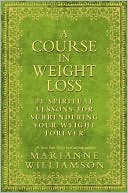How to Quit Smoking Without Gaining Weight
Do you rely on smoking to keep your weight in check?\ Are you afraid to quit smoking because you're worried about gaining weight?\ Have you gained weight after quitting smoking...and gone back to smoking with hopes of losing the weight?\ If you answered YES to any of these questions, it's time to learn\ HOW TO QUIT SMOKING WITHOUT GAINING WEIGHT\ Based on the American Lung Association's smoking cessation program, here is expert advice on how to quit smoking in a healthy way that allows you to...
Search in google:
Do you rely on smoking to keep your weight in check?Are you afraid to quit smoking because you're worried about gaining weight?Have you gained weight after quitting smoking...and gone back to smoking with hopes of losing the weight?If you answered YES to any of these questions, it's time to learn HOW TO QUIT SMOKING WITHOUT GAINING WEIGHTBased on the American Lung Association's smoking cessation program, here is expert advice on how to quit smoking in a healthy way that allows you to kick the habit without ruining your waistline. This groundbreaking book will show you: How quitting smoking can add years to your life Why vegetables and fruits are the most important foods to eat while you're quitting How to add more physical activity to your day Which foods to turn to during a nicotine craving How to stay motivated, even during tough times...and dozens of other strategies that can help you to work with your cravings — instead of against them — to attain a healthy and fit smoke-free life.Includes meal plan suggestions, recipes, and snack ideas!
Chapter One: Facts and Fictions about Quitting Smoking and Managing Your Weight\ Congratulations! The fact that you opened this book shows that you have taken an interest in quitting smoking and improving your health — and for that alone you deserve a pat on the back! Think it's time to kick the habit? You may feel overwhelmed by the idea or aren't sure that you're ready to do it. Maybe you have even tried to quit before but found it to be too hard and decided not to. Whether you're a first-time quitter or a seasoned veteran, quitting smoking is not an easy thing to do. For most people, there are plenty of obstacles that get in the way. But rest assured, 44.8 million ex-smokers have shown that it can be done, and we are here to help!\ If you are especially concerned about gaining weight when you quit, this book is for you. Fear of weight gain is a common reason why people, especially women, do not even attempt to quit smoking. Although statistics vary, as many as 60 percent of men and 51 percent of women gain weight when they quit; 25 percent of women gain in excess of 15 pounds.\ We present several strategies and helpful tips here for getting past the obstacles to quitting smoking and on to a healthier way of life — without expanding your waistline. Even if you aren't ready to quit yet, focusing on improving other parts of your life, like becoming more physically active or making healthier food choices, can bring you closer to that goal. If you have tried to quit before, we will help you use your past experience to find ways to quit that better fit your lifestyle — so that you can stay smoke-free for good.\ Many people think that quitting smoking is either something you can or cannot do. This way of thinking makes the thought of quitting smoking, becoming more physically active, and eating healthier seem like a major test of character. But quitting is not an "all-or-nothing" undertaking. It's really about learning how to make healthy choices — one day and one choice at a time. This book will teach you a variety of skills and specific strategies for dealing with difficult situations that test your commitment to quitting, like the urge to smoke a cigarette with your morning coffee or after a meal. Quitting smoking is the result of many individual choices.\ Many of the techniques in this book are based on the American Lung Association's Freedom From Smoking® Program and its comprehensive guide to quitting smoking, 7 Steps to a Smoke-Free Life (1998, LifeTime Media, Inc., Published by John Wiley & Sons, Inc.). We combine the wisdom of American Lung Association programs with our own research on smoking, physical activity, and eating habits, and years of firsthand clinical experience. We have helped thousands of people like you quit smoking and improve their health, and we will provide you with many proven methods for doing the same.\ Based on our research and experience, we see quitting smoking, physical activity, and healthy eating as a system of habits that are essential to the overall picture of your health. By working on any one of these elements, it will become easier to make changes in the others. Nicotine is a highly addictive drug, and combined with the habitual nature of smoking, quitting can be a difficult thing to do. Many people use unhealthy foods as a replacement for their smoking habit and as a way of coping with cravings for nicotine. This is part of the reason why smokers tend to gain weight when they quit. We want to help you form new, healthier habits. This means replacing your cigarette addiction with a different kind of "addiction" — satisfying that feeling of wanting something in your mouth by eating some fresh strawberries or carrot sticks. Or by getting addicted to your new aerobics class or a daily walk around the block. Ever notice that people who exercise regularly say they can't live without it? The key is to find physical activities that fit into your lifestyle and healthy foods that satisfy your hunger and taste good. We'll provide you with a firm plan for eating healthier foods and getting more physically active so you can overcome your addiction to smoking and formulate new habits that will keep you healthy and trim.\ Timing is key to this process. This book is organized around the physical and psychological changes you may experience over time when you try to quit smoking and manage your weight. This schedule is not set in stone. It is a structure that can help you more easily track your progress and plan your next steps. For example, if you get stuck at any point, you can go back to an earlier lesson and reinforce what you have learned. This happens to most people, so please don't be hard on yourself if it happens to you. The idea is to create and follow a program that you will stick to — one that fits with your routines, but also one that will get you to break some of your not-so-healthy habits and adopt healthier new ones.\ Before we move into the core of the program, there are some basic facts about smoking and weight management that you should know. Knowing the basics may help to settle your fears about quitting. In the following pages, we will help you better understand the relationship between smoking and weight gain, and how quitting may affect you physically and emotionally. This information can help prepare you to make decisions about how and when you want to begin the program. Beginning with the facts, the information in this book will supply you with a broad array of tools for becoming a healthier and more energetic person overall.\ Introduction to Smoking and Weight Management\ The Facts about Quitting and Weight Gain\ Quitting smoking is a really tough thing to do, and many people decide not to quit because they are afraid they'll gain weight. You may have tried to quit before and gone back to smoking because you gained five or ten pounds. If these scenarios sound familiar, you are not alone. Many people experience the same anxiety when trying to quit: People gain an average of 10 to 13 pounds when they stop smoking, and many of them return to smoking to lose that weight. This is especially true for women. Experts have found that fear of weight gain is a significant barrier for women who want to quit, and some studies show that women are more likely than men to recognize that they use smoking as a weight-loss strategy. Women are four times more likely than male smokers to report fear of weight gain as a reason for starting to smoke again. Fear can be an obstacle for anyone trying to quit smoking, but it is also one that can be resolved. Just keep the many rewards of quitting in mind: you won't smell of tobacco, you won't be forced to excuse yourself from social situations to smoke a cigarette, you will feel confident and in control. You'll be on the road to looking and feeling more healthy and vibrant! And within a couple of weeks to a month, you will have decreased your chances of heart attack and stroke, you'll breathe easier, your eyes and throat will be less prone to irritation, and walking and other forms of physical activity will get easier. Don't be afraid of living a healthy and smoke-free life!\ This is not to say that weight gain is not a real problem for people trying to quit smoking. Keep in mind that some people actually lose weight when they quit smoking, mostly because they make other healthy lifestyle changes in the process, such as becoming more physically active and eating healthier foods. One study, however, showed that major weight gain (roughly 30 pounds or more) occurs in almost 10 percent of men and a little more than 13 percent of women who quit smoking. The risk of being a "supergainer" is greater among those who smoke more than 15 cigarettes per day. People who smoke almost a pack or more a day may want to pay special attention to managing their weight when they quit. But those who smoke at this rate or more are also at higher risk for other negative health effects of smoking.\ Regardless of your level of risk, don't let these numbers discourage you or prevent you from attaining your goal. Millions of people have quit successfully and many of them have done so while keeping weight gain to a minimum. It can be done! Just keep reminding yourself that the strain on your heart from smoking a pack a day is like carrying around 75 to 100 extra pounds of body weight. And, quitting can add 5 to 10 years to your life. To help you reach your goal, we have designed a program that will help you stay motivated and make use of easy, hassle-free ways to achieve your objectives. Rather than taking a rigid approach to quitting, we believe that a solid, flexible plan that leaves room for the ups and downs of daily life will keep you on track toward a more healthy and smoke-free life.\ Quitting and Weight Gain: A Vicious Cycle\ When smokers try to quit there are many factors at play, and weight gain is one of them. Pressures to be thin are indeed very strong, and cigarette companies don't make it any easier. They like to play on your desire to be thin, especially if you are a woman. Ads present smoking as a way of controlling weight and coping with life's pressures. Why do you think advertisers tell us that "You've come a long way, baby" and call the product "Virginia Slims"?\ Many people get trapped in a vicious cycle of quitting smoking, gaining weight, and going back to smoking. But this merry-go-round of quitting and smoking again doesn't work. Most of the time people do not end up taking off all the weight they gained in the first place, and so they are still smoking cigarettes and endangering their health. Plus smokers then feel frustrated and angry with themselves for failing. This makes it even harder for them to get motivated to make the next attempt to quit.\ The best way to get off the merry-go-round is to stop using smoking as a means of managing your weight. This book offers you alternatives that take into account your desire to quit and manage your weight, safely and successfully. Remember, it can and has been done by millions. Like many of those who have quit smoking successfully, you may gain some weight at first. But if you stick with the suggestions in this book, you can avoid or minimize weight gain from the start. In our work, we have found that women who participated in a program of regular physical activity while quitting smoking gained an average of 6 pounds during a 12-week program. Those who were not in the physical activity program gained about 12 pounds. We will provide you with proven methods to minimize weight gain. These may be adapted to your lifestyle so that over the long run — in about a year or so — you can lose any weight you may have gained while quitting smoking and look and feel terrific.\ Why People Gain Weight When Quitting\ Changes in Metabolism\ Scientists have found that smokers generally weigh less than nonsmokers. Smoking may affect the amount and the types of food that people eat and how their body processes food, causing smokers to have a lower body weight. One of the physical reasons some people gain weight when they quit is because of changes in metabolism. Your metabolic rate is related to how your body burns calories. It regulates the processes by which your body gets its energy from food, which is vital to its overall function.\ Smoking speeds up your metabolism. Here's how it works: Nicotine, just one of the more than 4,000 chemicals in cigarettes, stimulates the central nervous system and other organs. In doing so, it increases the amount of energy you use up. Smoking increases your metabolic rate, so that you burn more calories. When you quit, your metabolic rate slows down to what it was before you started to smoke. For the typical smoker trying to quit, changes in metabolism may result in a weight gain of 2 or 3 pounds. However, it is the increase in eating, particularly foods high in fat or sugar, that results in most of the weight gain that people experience. The good news is that we can help you with your physical activity and food choices to avoid or minimize this kind of weight gain.\ One of the most effective ways to manage your weight after quitting is to increase your level of physical activity. Exercise increases metabolism, and even moderate levels of activity can help you burn fat and improve your overall health. Exercise also improves mood, so increases in physical activity such as walking, swimming, doing yard work or even taking the stairs instead of the elevator in your workplace can help you stay positive and assist you in the quitting process. Often raising your level of activity can make a real difference. For example, one study we conducted showed that participating in a regular physical activity program reduced weight gain after quitting and actually increased the chances of quitting successfully. Another study showed that women who report little recreational physical activity have a greater chance of gaining weight after quitting than more active women do.\ Later, in chapter five, we will give you specific tips on how to transform some of your daily activities into ways that will raise your metabolic rate. This is something you can work on before, during, and after you start to quit. Making small adjustments in your lifestyle will accelerate your progress toward your goal of better health, a longer life, and more energy to enjoy it. As we said before, timing is an important part of this program. We will help you decide the right time to increase the level of physical activity in your routine. Our goal is to leave you with a sustainable program that is enjoyable, results-oriented, and most important, realistic. This way, physical activity can more easily become a part of your daily life and help keep you healthy and smoke-free. We have already helped thousands of people rediscover the wonders of an active life and we can help you too.\ Changes in Eating Style\ Healthy eating habits play a key role in maintaining your weight or minimizing weight gain when you quit smoking. Sometimes people gain weight after quitting because of poor eating choices. That is, they simply eat more food, or eat foods that have a lot of fat or sugar. Without the foul taste of cigarettes in your mouth, food may taste and smell better, which could lead to extra helpings at the dinner table. You may also be prone to eating more between meals. Snacking can easily become a substitute for smoking or a way of coping with cravings or stress. Current research indicates that while quitting, many smokers develop cravings for sweet foods, which may be high in calories, fat, and sugar. In fact, some scientists think that nicotine affects the level of blood sugar in the body so that nicotine withdrawal triggers an increased craving for sweet foods. In chapter six, we will talk about how you can substitute tasty and healthy snacks when you are craving a cigarette. We will also give you some tips on how to combat cravings — as well as oral fixation and boredom — by making better food choices. This includes learning how to eat in moderation and how to eat a variety of healthy foods that will give your body the fuel it needs. You may find that within two to three weeks after you stop smoking, the sharpest nicotine cravings will fade and you will have already started to develop healthy eating habits that can benefit you for the rest of your life.\ Later in the book, we will cover how you can use healthy snacks and beverages to battle the urge to smoke. Just like smoking, eating is a habit too; no doubt you've become accustomed to eating certain foods. Some foods (chocolate, for example) are high in fat, sugar, and calories. Do you have to give up chocolate for the rest of your life? No! But we want to make sure that you're well aware of the foods you eat and the beverages you drink so that your calories don't creep up during the day. There are no forbidden foods in a healthy eating plan, but some foods you will want to eat often, while others should be saved for special occasions. With this plan, there are no fads, crash diets, or fancy gourmet meals that take hours to prepare. Just sound, nutritional advice to help you quit smoking and manage your weight in the process.\ The Dangers of Smoking\ A Matter of Life and Death\ Now you might be saying to yourself, "Why do they want to tell me this stuff? I already know that smoking is bad for me. Otherwise, I wouldn't have bought this book!" That's true. Most people know that smoking is bad for them. But surveys by the American Lung Association and other health and research organizations show that most people don't realize how enormously bad smoking is for them. Doctors are used to patients who say, "Well, I've got to have one vice and other than smoking, I live a pretty healthy life." The fact is, that if you could do only one thing to protect your health, not smoking should be No. 1. Recognizing this will help you stay on track when gaining a few pounds might lead you to think you should go back to smoking to shed the weight. That's why we want to review some of the major reasons quitting is the most important thing you can do for yourself.\ Smoking is much more dangerous to your health than any weight you may gain. This cannot be emphasized enough.\ Here are just some of the facts:\ Research shows that about half of all regular cigarette smokers die of smoking-related diseases.\ Smoking is responsible for one in five deaths in the United States.\ More Americans die each year from smoking-related diseases than from AIDS, drug abuse, car accidents, and murder — combined.\ Smoking is directly responsible for 87 percent of lung cancer cases and causes most cases of emphysema and chronic bronchitis.\ Smoking kills more people from coronary heart disease every year than from cancer. Cigarette smoking is a significant risk factor for coronary heart disease. Smoking increases blood pressure, decreases exercise tolerance, and increases the tendency for blood to clot. The U.S. Surgeon General called cigarette smoking "the most important of the known modifiable risk factors for coronary heart disease in the United States."\ Smoking is also a major factor in stroke, and has been linked to a variety of other conditions and disorders, including slowed healing of wounds and infertility.\ Because it causes problems with blood flow, smoking can cause impotence among men.\ Smoking is not only bad for your health, but it also harms the environment and endangers the health of those around you. Cigarettes contain at least 69 different chemicals that have been linked to cancer. Every time someone smokes, poisons are released into the air. This means that not only are smokers inhaling these harmful substances, so is everyone else around them. Many studies have shown that secondhand smoke is harmful to nonsmokers and can cause them to develop serious illnesses such as lung and other cancers and coronary heart disease. We know that smoking in the household makes children's asthma worse, and can lead to increased emergency room visits or hospitalizations for asthmatic children. In this light, quitting is especially important for people with children or those planning to have them. Children's lungs are particularly sensitive to their environments and exposure to cigarette smoke early in life can affect lung development and increase the risk for lung disease.\ Nicotine and Addiction\ One of the reasons why it is so hard to quit smoking is because of the presence of nicotine in cigarettes. Nicotine is an addictive drug. In fact, the Surgeon General has reported that cigarettes are just as addictive as cocaine or heroin.\ Nicotine can have different effects at different times, and most experienced smokers are pretty good at getting all of them. It can act as an "upper" and speed up many body reactions. Or it can act as a "downer" and reduce anxiety. How it works depends on several factors — the amount of nicotine in the body, the time passed since the last cigarette, stress level, and time of day. Early in the day nicotine acts as a stimulant to many people. Later in the day it seems to act more as a sedative and helps people to relax. Nicotine also raises mood — in this way, it helps smokers cope with low moods or sadness.\ The fact that smoking may raise one's mood, reduce anxiety, and even increase alertness makes it all the more attractive. That's why people who are under stress or feel nervous or bored often are at greater risk of becoming addicted to nicotine. What may be the most troublesome part of all of this is the fact that cigarettes are ideal ways of getting nicotine to people. It only takes 7 seconds from the time you inhale to the time nicotine hits your brain. That's why that first puff after a long movie feels so good — 7 seconds and nirvana, here I come! Physical activity is a great substitute for smoking in this regard. With it, you can reduce tension, raise your mood and help fight depression and anxiety without putting your health and well being at risk. We'll go over this in chapter five.\ The habitual nature of smoking also contributes to the difficulty of quitting. Smokers get hooked on the taste, smell, and feel of cigarettes. They link smoking with many activities. Some people like to smoke when they are talking on the telephone or having a cup of coffee. Other people like to smoke at parties or when they are relaxing at home. The person who has smoked a pack a day for 20 years — maybe you — has inhaled over a million times (7 puffs per cigarette x 20 cigarettes a day x 365 days a year x 20 years = 1,022,000). The combination of nicotine addiction and these kinds of strong mental links makes smoking a tough habit to break.\ Smoking is used by many people as a way of coping with life's pressures, and nicotine withdrawal can increase your anxiety and stress. After quitting, many people turn to food to relieve feelings of anxiety and develop unhealthy eating habits. By coupling quitting smoking with eating balanced meals and healthy snacks, you can start to break the links between feelings of anxiety and use of both foods and cigarettes for comfort. Walking and other forms of physical activity can relieve stress, can help you sleep better, and can have an overall calming effect. And, in addition to physical activity and making healthy eating choices, there is a broad range of techniques to help you quit, including nicotine replacement, other medicines, and group smoking cessation programs to help you. There are plenty of ways to learn to cope with stress or boredom besides nicotine. We will review these many options and help tailor them to meet your specific needs.\ The Personal and Social Costs of Smoking\ Smoking can negatively affect your appearance, but there are other costs as well, including social isolation. Increasing public sentiment against smoking combined with knowledge of the effects of secondhand smoke have influenced public policy to the extent that many cities around the country such as Boston, New York, San Francisco, and Anchorage have banned smoking in most public places, including office buildings, bars, and restaurants. People who smoke now have to stand outside to get their fix. In addition, many states have instituted high taxes on cigarettes in an attempt to discourage smoking, thereby increasing the cost of that nicotine. For example, a pack a day in many states costs roughly $2,500 per year — more than enough for a health club membership and maybe even a personal trainer or a great vacation. The American Lung Association's State of Tobacco Control: 2003 is a great resource for finding out about the tobacco control laws in your state. It can be accessed via the American Lung Association's website at www.lungusa.org under "tobacco control." The site also provides information about new research on state tobacco laws, which has shown that high taxes and bans have indeed been effective in getting people to quit smoking. Despite the fact that fewer people are smoking, the cost to society is still very high. Smoking costs the nation over $150 billion per year in health care costs and lost productivity from missing days at work. Personally, it could cost you your life — which is why we want to help you quit today!\ Copyright © 2004 by Life Time Media, Inc.
Prefaceix1.Facts and Fictions about Quitting Smoking and Managing Your Weight12.Healthy Living 101193.Preparing to Quit: The First 2 to 3 Weeks554.Preparing for and Getting Through Your Quit Day775.Staying Smoke-free: Managing Your Weight Through Physical Activity936.Staying Smoke-free: Making Healthy Eating Choices1117.Three Weeks to Six Months After Quitting1338.Six Months and After: The Healthy New You1599.Sample Menus and Recipes for Healthy Eating181Index207








